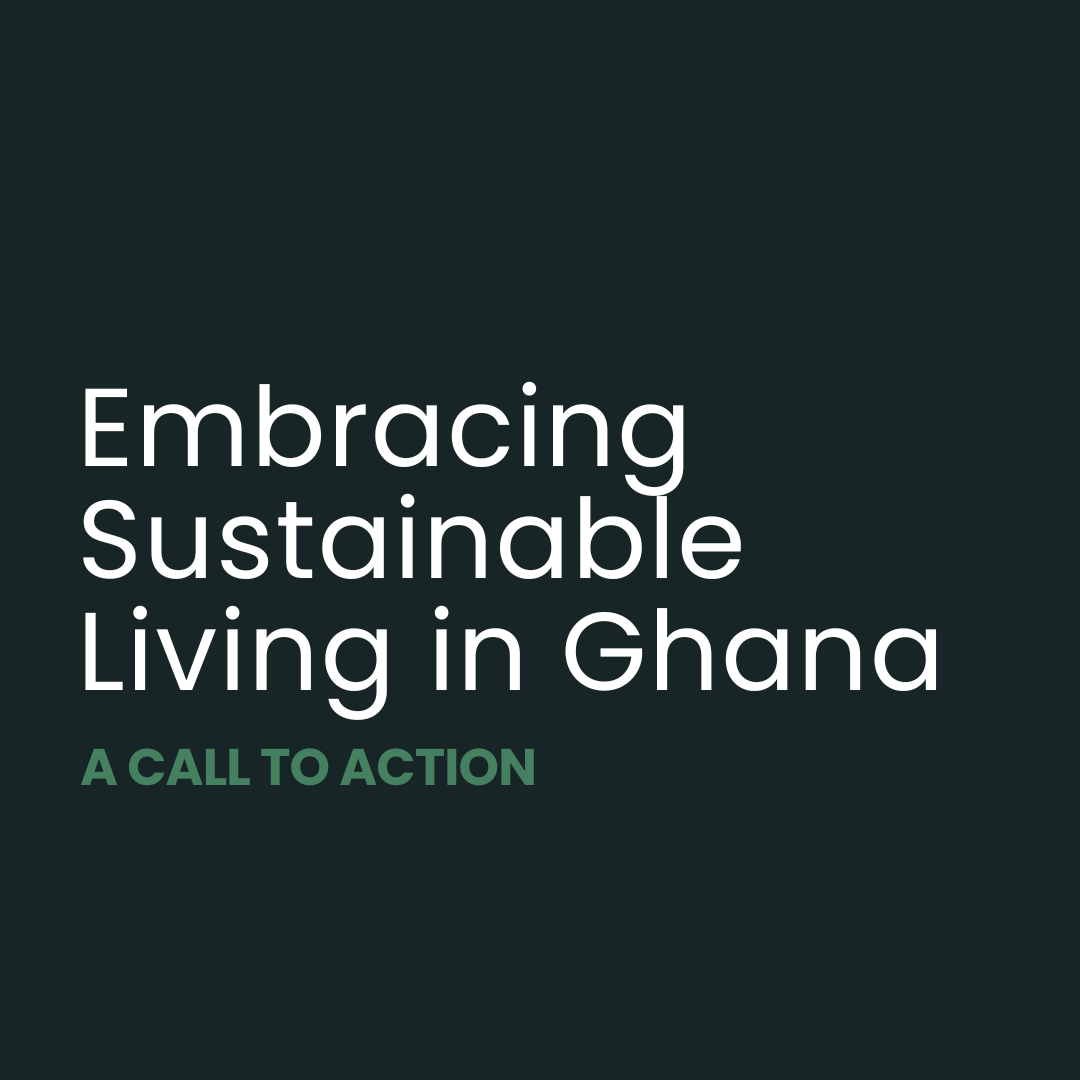Ghana, with its vibrant landscapes and rich cultural heritage, is facing significant environmental challenges. One of the most pressing issues is poor waste management, which has been identified as a major cause of flooding across the country. Each year, Ghana produces one million tons of plastic waste, with 28 percent ending up on land and 23 percent in the sea. This alarming reality underscores the urgent need for sustainable living practices to become the new norm.
The Perils of Plastic Pollution
Plastic waste poses severe risks to Ghana’s environment, human health, and economy. The widespread use of single-use plastics, such as bags, bottles, and packaging materials, contributes significantly to this problem.
Environmental Degradation
Plastics take centuries to decompose, causing long-term environmental contamination. In urban areas, plastic waste clogs drainage systems, leading to flooding during the rainy season. These floods not only damage infrastructure but also displace communities and disrupt daily life.
Ghana’s coastline, extending over 500 kilometers, is heavily polluted with plastic debris. This pollution harms marine life, with fish, turtles, and seabirds often ingesting or becoming entangled in plastic waste. The decline in marine biodiversity affects the livelihoods of coastal communities dependent on fishing.
Human Health Risks
The accumulation of plastic waste poses significant health risks. Open burning of plastics, a common disposal method in Ghana, releases toxic fumes, contributing to respiratory problems and other health issues. Plastics in water sources can leach harmful chemicals, contaminating drinking water and agricultural soil, leading to a range of health problems, including hormonal imbalances and developmental issues.
Economic Impact
Plastic pollution has profound economic implications. The tourism industry, a vital revenue source for Ghana, suffers as beaches and natural attractions become polluted. The cost of cleaning up plastic waste strains local governments’ budgets. Additionally, the decline in fish stocks due to marine pollution directly impacts the fishing industry, leading to loss of income for many families.
The Solution: Sustainable Living and Green Practices
As a forward-thinking business, we recognize our responsibility to contribute to a sustainable future. Our mission is to provide eco-friendly and sustainable packaging solutions to businesses and individuals, adopting the #Greenisthenewnormallifestyle. This commitment goes beyond business; it is our conscious effort towards creating a future of hope.
Reducing Plastic Use
One effective way to combat plastic pollution is to reduce the use of single-use plastics. We offer sustainable, recyclable, reusable, and biodegradable packaging options. Encouraging the use of these alternatives can significantly decrease plastic waste.
Promoting Recycling
Improving recycling infrastructure is crucial. We advocate for better recycling facilities and public education campaigns to enhance recycling efforts. Establishing a robust system for collecting, sorting, and processing plastic waste can create job opportunities and stimulate the economy.
Supporting Eco-friendly Alternatives
We promote the use of eco-friendly alternatives to plastics, such as biodegradable materials. By encouraging local businesses to produce and market sustainable products, we can drive innovation and create new market opportunities.
Community Engagement and Education
Raising awareness about the importance of sustainable living is key. Community engagement programs, school curricula, and media campaigns can educate the public about the impacts of plastic pollution and the benefits of sustainable practices. Empowering individuals with knowledge and practical solutions can inspire collective action.
Strengthening Legislation
Robust environmental policies and regulations are essential. Strengthening legislation to control plastic production, importation, and disposal can significantly reduce plastic waste. Enforcement mechanisms must ensure that these regulations are effectively implemented.
Join Us in Creating a Sustainable Ghana
2020 taught us the importance of making better choices today to secure a better future. Despite the uncertainties, we can play our part by making informed choices. For us, this means choosing sustainable, recyclable, reusable, or biodegradable packaging options.
Send us an email to learn how we can help you transition to eco-friendly packaging solutions. Together, we can make a difference and create a sustainable future for Ghana.
#smeghana #greenpackaging #compostablepackaging #foodpackaging #biodegradablepackaging #sustainableGhana #bmwpackaging

